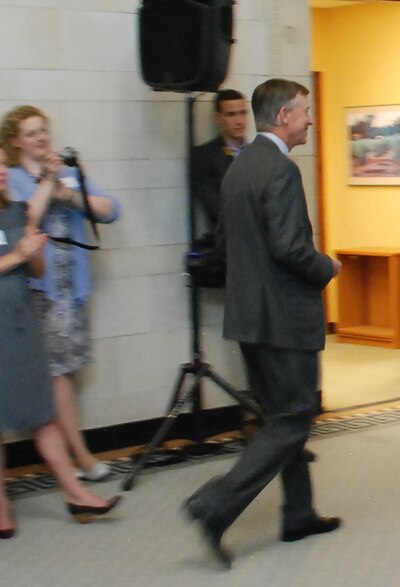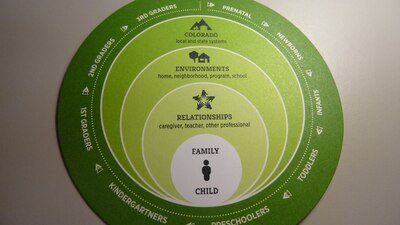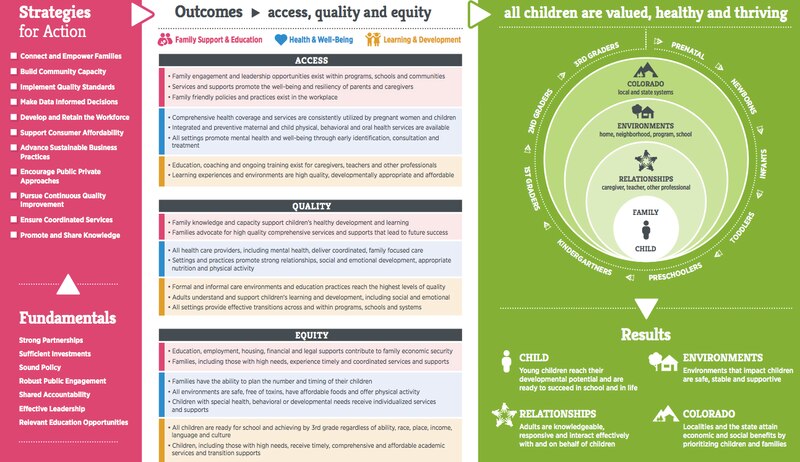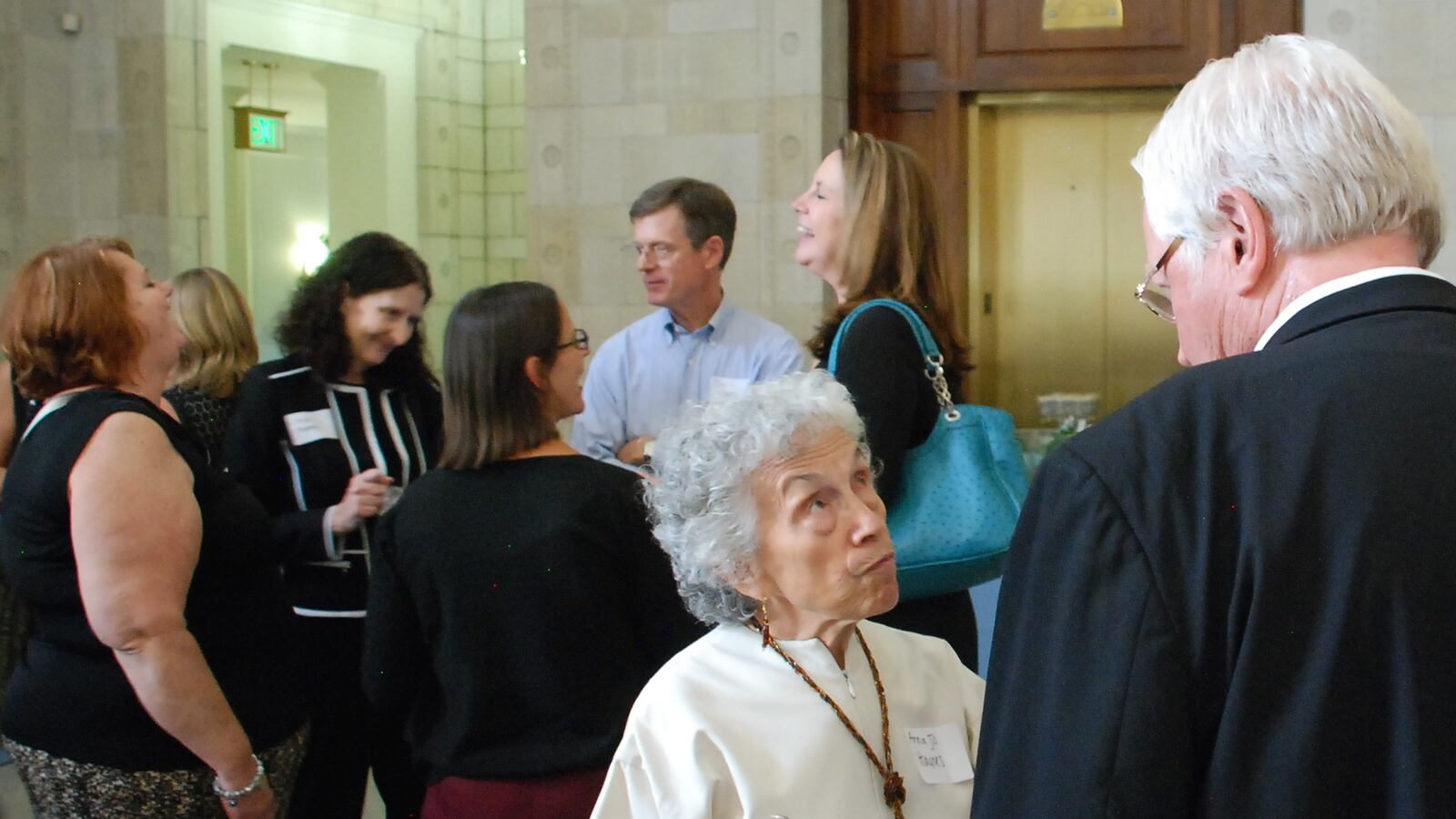The reception in the marbled lobby of the Colorado Trust building was for adults, but all about kids.
Little kids to be exact.
They are the focus of the brightly colored brochure that was officially unveiled on Wednesday evening and will soon find its way onto the desks of early childhood policymakers, advocates and educators—including K-12 administrators—across the state.
Officially called the Early Childhood Colorado Framework, the document outlines the state’s strategies and goals around early childhood education, health and family support.
The new framework is a simpler, more streamlined version of one first released in 2008. The revision cost about $100,000, with the money coming from the state and six foundations.
Early childhood leaders around the state say the new framework will be both easier to use and more comprehensive than the old one.
Anna Jo Haynes, co-chair of the state’s Early Childhood Leadership Commission, said the new version brings extra emphasis to each end of the early child spectrum, which covers the prenatal period to age eight.
Too often, there’s a tendency for discussions of early childhood to focus on the preschool years—typically ages three and four, she said.
“We haven’t been great about doing what we need to do with both ends of that spectrum,” Haynes said.
The new framework also brings more focus to the preschool-to-kindergarten transition and the large swath of young children not enrolled in licensed childcare programs, but rather watched informally by relatives, friends and neighbors.
Such informal arrangements often feel like a “black hole” to early childhood leaders, said Stephanie Martin, director of Routt County’s early childhood council.
They know it’s there, but have a hard time tracking it.
“I do think this is a more holistic approach,” Martin said. “You can share this framework with a broader audience.”
National context
While several states have some version of an early childhood plan, Colorado’s may be unique in the support it’s garnered from top state leaders. The crowd on Wednesday included several current and former legislators as well as Gov. John Hickenlooper.

Laura Bornfreund, deputy director of the New America Foundation’s Early Childhood Initiative, said the governor’s presence at the release event is significant.
He’s “using [his] bully pulpit to say, ‘Hey, early childhood is really important,” she said.
“These kinds of documents, be they frameworks or roadmaps or other kinds of high-level plans … set a vision at the state level,” she said.
Both Hickenlooper and Lt. Governor Joe Garcia, who is co-chair of the Early Childhood Leadership Commission, have prioritized improving early childhood programs.
In a short speech Wednesday evening, Hickenlooper said the framework follows on work done when he was Denver mayor to get the Denver Preschool Program sales tax passed.
He said the new framework is a key step in making Colorado the No. 1 state for children to grow up, saying “it’s “going to accelerate the pace of change for our kids.”
Keeping it real
Although the new framework is less wordy than the original, it will likely be used much the same way. That is, to help state leaders, funders, early childhood councils and community organizations set priorities, identify service gaps and better coordinate services.
Lisa Jansen Thompson, director of the Early Childhood Partnership of Adams County, described the framework as a “really good guide to make sure we’re addressing all the needs of our families and our community.”
Like many early childhood councils across the state, her team has used the framework extensively, she said.

“We live it and breath it, we literally have posters of it on our walls,” Jansen Thompson said.
One problem the partnership identified as they used the original framework was the lack of home visiting services for families of 2-year-olds in the county. The programs that were available, she said, either stopped at age 2 or started at age 3.
Jansen Thompson said once that gap was identified, a local organization that already provided some home visiting services secured additional grant money and expanded their program to cover 2-year-olds.
One group that may be relatively unfamiliar with the framework but is increasingly part of its target audience is elementary school administrators, Haynes said.
”How do you convince people in public schools this is really meant for you?” she said.
Some commission members have wondered if that group will balk at using the document, but Haynes said framework drafters and state education department staff will work to support principals and other district personnel.
“We’re hoping people will be open-minded and will look at it,” she said, “But we certainly don’t expect it to happen overnight.”



